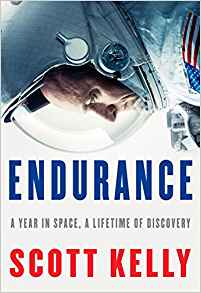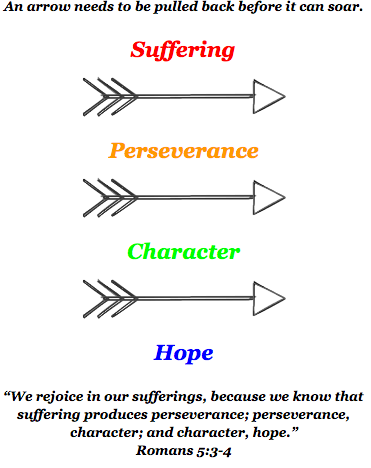 This month the O’Neill library book club discussed Scott Kelly’s Endurance, an account of his life and of his record-setting year on the International Space Station. My daughter is currently fascinated with space, wanted to read the book as well and actually read and finished it before I had a chance to pick it up. She has read a few other adult books, but this still seemed risky. I didn’t know what the pages held and whether it was appropriate for her. She seemed pretty set on devouring the text as quickly as possible, so I just told her this -- that this is an adult book and that if she came across something that made her uncomfortable she could choose to skip it or come and talk to me about it. When I finally began turning the pages, I learned that in his prose Kelly alternates chapters describing his life path with chapters describing his journey around the sun while aboard the ISS. I was startled by Kelly’s troubled upbringing and risk-taking behavior in a very different way had I not been trying to guess my daughter’s reaction to each uncomfortable description -- from an alcoholic and sometimes suicidal father and uncertainty and hunger in childhood to swearing, raucous behavior in the military, adult relationships and divorce. Nervously, unsure of how much to discuss with her, I commented to my daughter one night that I realized that Kelly had a pretty hard childhood. I asked her what she thought about that. She nodded as if she understood what I meant but then quickly said, “Yeah, I didn’t like those chapters so much. I just wanted to read about what he was doing in space!” I smiled at her and recalled a comment by our children’s librarian -- how kids probably won’t process a lot of adult content and how she herself remembers visiting books from childhood later in life and reading them in an entirely new light. Reassured, I continued to turn the pages and reflect on Kelly’s writing and experience, and I realized I could make a second list -- important takeaways from the lessons he learned. First, it was inspiring to learn that in the midst of failing at school (which he attributes in part to undiagnosed ADD) he found his life’s calling through reading The Right Stuff by Tom Wolfe. How wonderful to be inspired by a book! One reader at the O’Neill library discussion commented that Kelly’s book, in turn, could itself be used to inspire other struggling teens who may not fit with the traditional academic system. His work ethic and perseverance definitely produced a character that took him far. In addition to clearly describing his gratitude for Tom Wolfe, Kelly elucidates two other key factors that contributed to his (and his team’s) success. First, each member of the team was trustworthy, dependable, hard-working and willing to serve others. The astronauts listened to each other. They shared their food and supplies. They were from different countries and spoke different languages, so they learned foreign languages so they could understand each other. They helped each other with science experiments and repairing equipment on the space station. Kelly describes team member after team member not by the achievements they likely had on their resumes but by their character traits that made each an essential part of the team -- people he could trust literally with his life. Second, he returns repeatedly to the reality that the team members weren’t always friends -- indeed, Russians and Americans were too recently enemies in the Cold War. He praises the remarkable feat of engineering demonstrated in the construction and ongoing work on the ISS, but suggests that the real accomplishment is the fact that this is a cooperative endeavor made possible because those involved choose continually to be peacemakers. From his book: “It’s a strange sight, glinting in the reflected sunlight, as long as a football field, its solar arrays spread out more than half an acre. It’s a completely unique structure, assembled by spacewalkers flying around the Earth at 17,500 miles per hour in a vacuum, in extremes of temperature of plus and minus 270 degrees, the work of fifteen different nations over eighteen years, thousands of people speaking different languages and using different engineering methods and standards. In some cases the station’s modules never touched one another while on Earth, but they all fit together perfectly in space.” (364) “In a world of compromise and uncertainty, this space station is a triumph of engineering and cooperation. Putting it into orbit -- making it work and keeping it working -- is the hardest thing that human beings have ever done, and it stands as proof that when we set our minds to something hard, when we work together, we can do anything, including solving our problems here on Earth.” (364) I realized while reading Kelly’s book that these themes were the basis for the lessons I presented to the Tigers Christian Club this month. In our first lesson about Joseph and his brothers we learned the importance of managing anger, and beyond that, how to look for ways to be a peacemaker, noting that Jesus said in Matthew 5:9: “Blessed are the peacemakers.” We talked about what we could do to make peace, things like:
In the second lesson (which another mom presented when my family was under weather -- thank you!) we talked about how selfishness can make us want to be first or have the best of something, and we learned that Jesus wants us instead to learn to be servants first. From Mark 9:35: “If anyone wants to be first, he must be the very last, and the servant of all.” Putting others first is a way to honor others. Beyond that, when we put others ahead of ourselves, it builds character that allows us to handle more responsibility in the future. I intended to demonstrate this concept using a toy bow and arrow. Like arrows that need to be pulled back before they can soar, I suggested that so too can we act as servants towards one another, putting others first. As Paul writes in Romans, doing so produces perseverance which builds character and, in turn, creates hope. The kids then used feathers, glue and arrow stickers to decorate a picture frame featuring this message: It is my hope that Kelly’s book and these messages of peacemaking and a cultivating a servant’s heart will inspire you as well. Kelly became a peacemaker and a servant to those around him (and continues in this work as he dedicates his body to scientific study), and it took him out of this world. Where will the arrow of your heart take you?
0 Comments
Leave a Reply. |
Author's Log
Here you will find a catalog of my writing and reflections. Archives
December 2022
|
